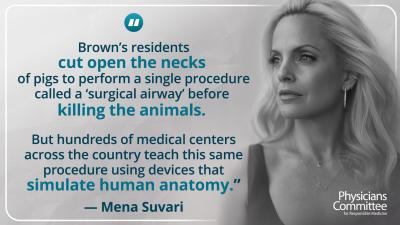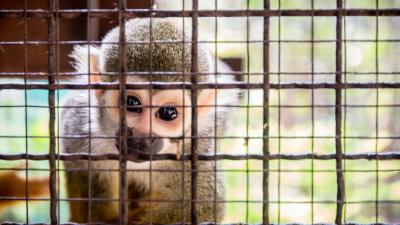UW Shelves Controversial Animal Lab Following Campaign by National Physicians Group
Surgery Department Had Resumed Using Animals in 2019

SEATTLE—Following a campaign by the Physicians Committee for Responsible Medicine, a national nonprofit with more than 17,000 doctor members, the University of Washington in Seattle has stopped using animals in a deadly, controversial training exercise. The course marked the reintroduction of animals to the university’s surgery curriculum when it was approved in 2019 over strong objections by a member of UW’s animal research oversight committee.
The now-abandoned course protocol allowed for the training of up to 70 invasive procedures, some of which included making several incisions in live pigs to insert surgical tools and a lighted camera in order to perform procedures on the colon, gallbladder, stomach, and adrenal glands. Since this course’s creation, Physicians Committee staff have provided the university’s Department of Surgery with evidence of training methods based on human anatomy and pointed to the fact that 79 percent of 262 surveyed U.S. surgery programs use only those methods.
“This is a big step for UW that will influence surgery training across the country,” said John Pippin, MD, FACC, director of academic affairs with the Physicians Committee. “We hope the university will take an important lesson from this and ensure only human-relevant training methods are used going forward.”
In 2021, UW also replaced the use of animals in its paramedic training program after a years-long effort by the Physicians Committee.
For an interview with Dr. Pippin, please contact Reina Pohl at 202-527-7326 or rpohl [at] pcrm.org (rpohl[at]pcrm[dot]org).
Media Contact
Reina Pohl, MPH
202-527-7326
rpohl[at]pcrm.org
Founded in 1985, the Physicians Committee for Responsible Medicine is a nonprofit organization that promotes preventive medicine, conducts clinical research, and encourages higher standards for ethics and effectiveness in education and research.







